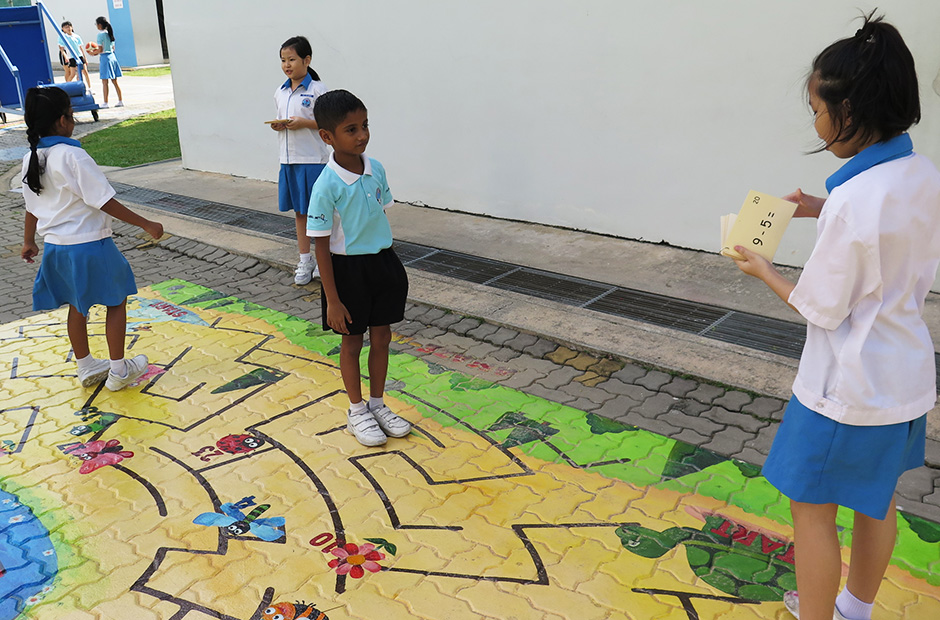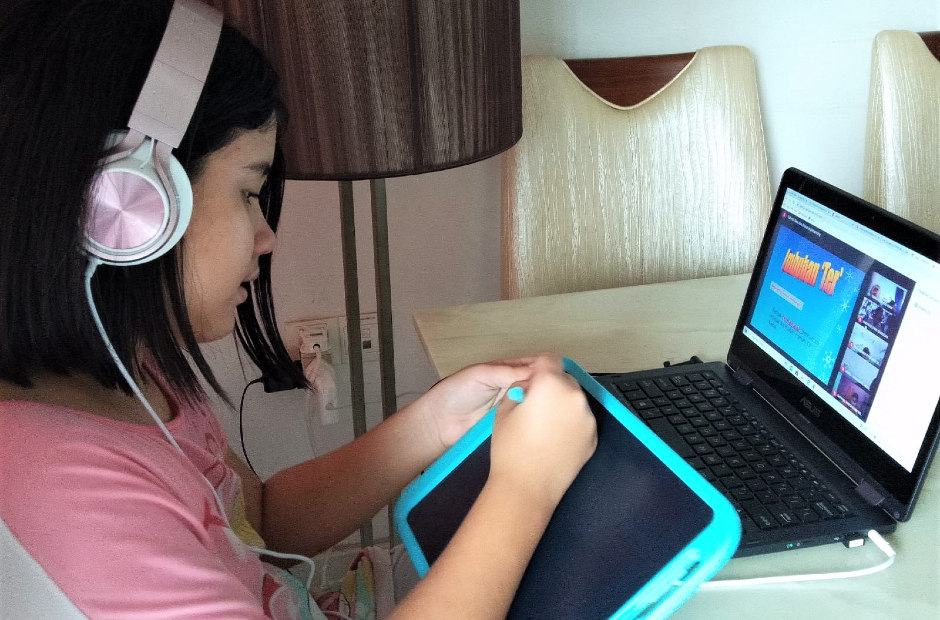“Play is learning for children. Play is really how children learn and make sense of the world,” says Dr Nirmala Karuppiah. If it seems like an oxymoron for the words ‘play’ and ‘learning’ to appear side by side, you’re not alone.
Dr Karuppiah is the Head for Education at NIE’s Centre for Research in Child Development. Her study, ‘Parents’ Perceptions of play and holistic development in the early years’, found that many parents may not realise that some academic areas can be learnt or better learnt through play, and that learning through play continues even through to primary school and beyond.
“Children use all their senses to learn,” she explains, “so the more senses they engage, the more they’ll develop. Because children often engage multiple senses through play, the learning is deeper compared to when they’re just seated reading a book or completing a worksheet.”
MOE’s Senior Specialist Sharon Lim from the Pre-school Education Branch agrees. In fact, she says play and learning are inseparable for children, because play gives a “wonderful context” for learning to be meaningful and in fact, play always involves learning.
“Through play, children develop socially and emotionally from having to engage with others,” Sharon says. Using musical chairs as an example, she says games like these help to teach children emotional self-regulation, because when they’re out of the game they would have to control their emotions and resist the urge to go back in.
Start from home
Sharon is a strong believer that you don’t need special resources or skills to teach children through play – just an understanding of the many ways to engage them with what’s already available.
She says simple household chores like sorting clean laundry can be a fun activity for children if you give them some parameters, like sorting by colour or by size. To children, that’s play, but they are also learning the concept of sorting. Early mathematics skills like matching, sorting and comparing help children understand simple relationships which are foundational to the understanding of the number system and in turn, will support their later mathematics learning.
Likewise, pretend play can be a great opportunity for children to be creative and to develop different skills such as social and emotional, language and literacy and even decision-making skills. Sharon vividly remembers how her sons would work together to do up posters for their own advertisements to draw customers in to their “spa” while also working out what type of music to play. As parents, you can help to facilitate and extend children’s play by providing them with simple resources and by participating in the play experience. This also gives you an opportunity to immerse yourself in their world and to bond with them.
Answer a question with a question, or point things out to your child as you go about your day. Sharon feels that even just voicing out your thoughts (e.g. “Look…”, “I wonder why…”, “Could it be that….”) helps to model your way of thinking, and this can help develop your child’s thinking and spur them to want to find out more.
Throw in a twist
Adding a twist to everyday activities is another great way to weave in learning opportunities into games. For example, letting children play Snake and Ladders using two dice instead of one so that they perform simple addition with each turn they take.
Madam A J Suhani Sujari, Acting Year Head (P1 & P2) at Eunos Primary school, remembers putting up a Children’s Day performance with fellow teachers that combined different fairy tales together with their own original ending that got the students excited.
She explains, “When children see characters they can identify, they think they know what’s going to happen. But if you catch them by surprise with a twist, that makes them think, and they get very excited, because they’ve been given the space to think – what are the other possibilities?”
Eunos Primary also plays with the concept of “making the environment the third teacher”. The school designs its space to facilitate learning. For example, having multiplication tables on staircases is a great way to let students learn indirectly, and height charts around the school help children develop a sense for measurement and scale. The idea is to allow students to learn at their own pace, in their own space with minimal direction.
Parents can get in on Play too
Dr Karuppiah hopes parents can provide lots of opportunities for children to explore and interact with the objects, people and events around them – and in an informal manner. For example, a trip to the wet market can be a great opportunity to show children what a whole fish looks like. These are things adults may take for granted, but can be eye-opening experience for a child who only identifies “fish” as what is found in fish balls!
Even something simple as giving a child free rein with an empty box can lead to many hours of fun and engagement. “You’ll be amazed at what ideas and games the child can come up with,” says Dr Karuppiah. “The main objective is to encourage children to keep thinking, discovering and creating.”
Ultimately, Dr Karuppiah’s advice for parents is not only to give children a chance to play but also to be involved. Doing daily activities together with a focus on triggering their sense of curiosity and wonder will help them develop a love for learning and to become lifelong learners.




.jpg)

